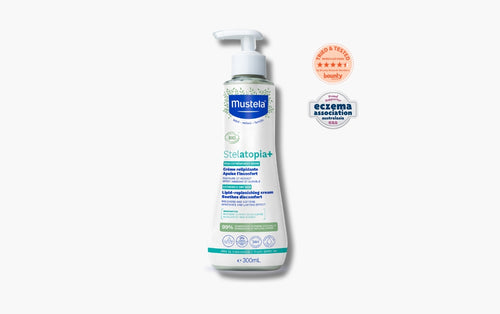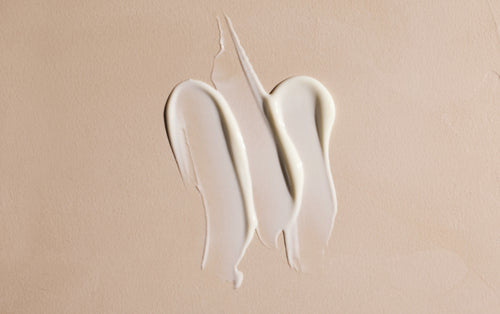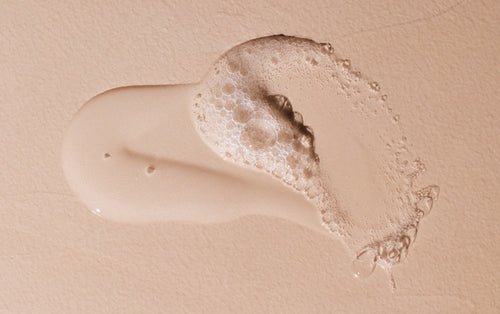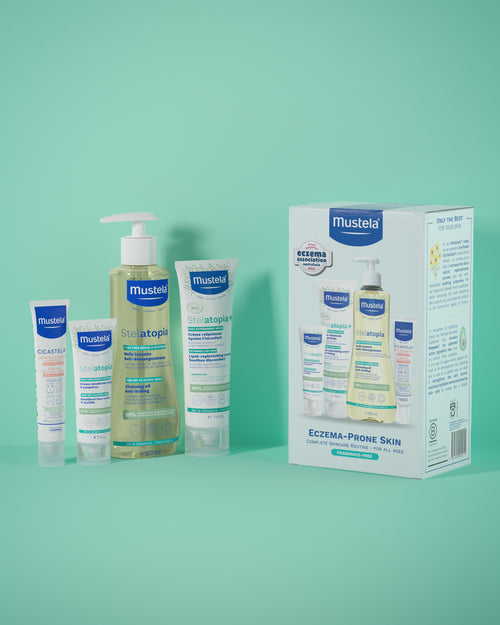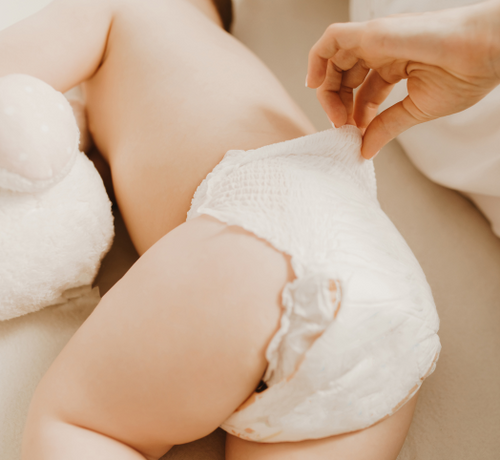Written in partnership with Dr. Clarence De BELILOVSKY, dermatologist & member of the Mustela experts' circle.
Extremely dry skin, affects one child in five.
1. If the signs are unpleasant (redness, itching sensations, dryness, etc.), they are not rare, nor contagious to other children, and not irreversible. More precisely, extremely dry skin symptoms can appear by the age of two months (sometimes even earlier) and can abate or disappear at around five or six years old. In the meantime, don’t worry: some care and a little attention can and will soothe your baby. What is extremely dry skin? Let’s start at the beginning. Where does it come from? It comes from a combination of two key factors: an extremely reactive immune system and very dry skin We talk about extremely dry skin when the immune system responds excessively when it is in contact with allergens or other, environmental situations (read our advice for the home). It can be hereditary. There is a 40-50% probability that the child will also develop it when one of the parents is atopic, and a 50-80% probability when both parents are.
2. Other causes can also explain its appearance, like pollution or an over-zealous hygiene routine! Indeed, extremely dry skin is more developed in industrialized countries than in developing ones. What is extremely dry skin and how can it be soothed? The skin usually creates a thin layer of water and oils (lipids) on its surface to protect itself, known as a hydrolipidic film. Furthermore, it produces the filaggrin, a molecule that serves as a “cement” to ensure its permeability. When the level of lipids or filaggrin is not sufficient, the skin allow water to evaporate. It loses its permeability and doesn’t complete its role as a barrier against certain harmful factors; allergens can thus enter the system easily. In brief: excessive reaction of the immune system + dry skin = extremely dry skin if there are allergens or in particular environmental situations. This results in more or less inflammatory red patches.
The skin itches and is irritated, a situation that can affect the well-being of the youngest, especially their sleep quality. However, extremely dry skin doesn’t disrupt their lives every day.
Between two flare-ups, there are some periods of respite that you can extend via simple daily precautions. See for yourself! 1 Sources: Watson 2011, Isaac 1998. 2 Sources: Böhme 2003, Taïb 2008.








